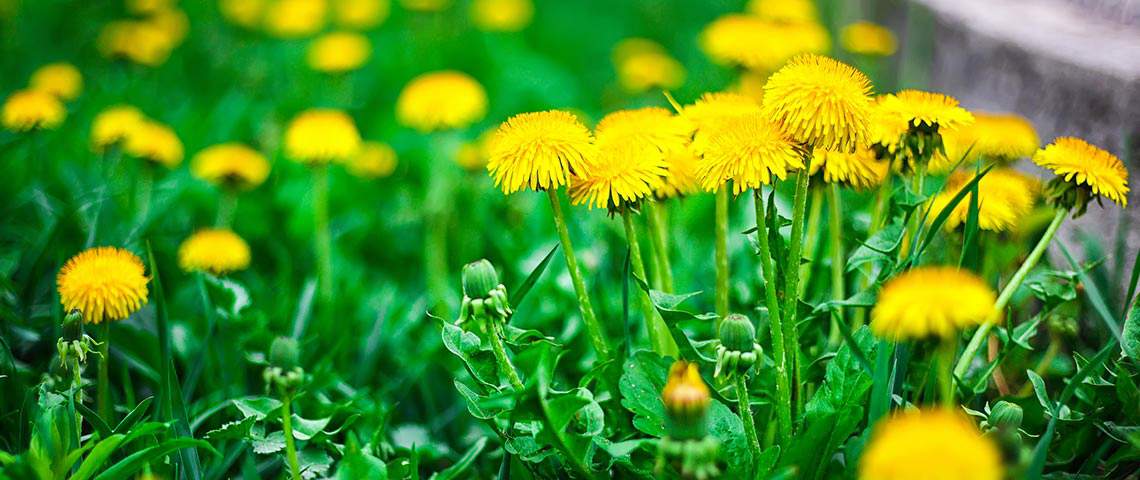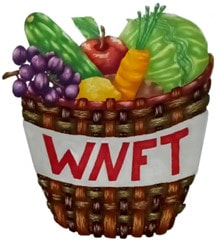 We've invested a lot in the concept of beautiful spaces in the last century. In pioneer days and rural America, function almost always came before form. People worked too hard to waste time on vision appeal that had no intrinsic value. What changed after World War II? I think Americans decided the war had made us safe on a new level, and pursuing the American Dream took on new meaning. Suburbs. White picket fences. Expansive lawns. Window boxes. As our country becomes more densely populated and urban centers more predominant, we place even more value on our living space, our clothing and accessories, our curb appeal. Heck, we even built a whole industry around food plating and photography. How things look matters to us. The flip side, of course, is that anything perceived as unsightly or bothersome must be eliminated. Some idiot ages ago decided that dandelions are unsightly, even though they have far more practical uses than grass. We bought it. We sprayed and dug and treated our yards like mad to eliminate edible, medicinal, and fragrant "weeds" to make way for ornamental manicured plants. No more unsightly weeds. Garbage? Don't want to see it -- develop municipal trash collection, create landfills, build enclosures around waste containers, and heaven forbid garbage trucks should be cruising our streets when we're out there -- get the pickups done in the wee hours so we can all pretend we don't actually have garbage. All of this attention on appearances wasn't entirely awful until we started applying the idea to human beings. There have always been and will always be poor people, people who take on jobs that are "lower" in our minds, dirty people, the lower class is a supposedly classless society of equal rights and equal opportunities. Pre-WWII, pre-suburbs, people were people, no matter their economic status. (Let's not argue racism here, that's a whole other issue.) People who couldn't afford commercially-produced homes were fine living in make-shift shelters. There was nothing shameful about traveling to find work, or pitching a tent alongside a stream, or even knocking on a farmhouse door and asking if there was something one could do in trade for a meal or shelter in the barn for a night or two in bad weather. People, in general, looked out for one another. Survival was at stake, after all, and allowing another person to starve or freeze or die of a curable illness was just not OK. Now people without money are unsightly. They interfere with the artificial image of the world that we've built for ourselves. The suburbs used to be where successful people could go to live in a big house on a wide street where kids could ride their bikes to a nearby park in complete safety. Heaven forbid that anything unsightly should tarnish our fake pretty little worlds. Garbage in the street? Call the city. Under-maintained yard? Create a homeowners' association. Fast drivers? Increase traffic regulation. Do NOT mess with my fantasy world. OK, I understand the affluent among us wanting to control their environments. What I don't get is why people aren't willing to invest as much creativity and money to solve the poverty problem as they are to solve the dandelion problem. How hard is it to invest in plots of land with water, power, and waste management that people are welcome to occupy, even if for a limited time? What would it cost to provide transit service for people who can't find a safe place to sleep to a central public services facility that had enough funding to provide basic necessities? What would it cost to allow older trailers and motor homes to park on designated public land and plant concealing shrubbery around the perimeter like we do our current trailer parks? We don't seem to mind living near poverty, as long as we don't have to look at it. "We don't want THOSE people here" is as un-American as it gets. Not here? OK, tell me where. Create a space. Even garbage gets a designated space. You want to make America beautiful? Grow dandelions and eliminate lawns. Grow vegetables, not poisonous shrubs. Grow people and public services and the mental health industry, not prisons and detention centers and temporary shelters infested with bedbugs. Invest in portable shelters and public access to power and clean water. Most of all, KNOW where a person can go to survive and help them get there, if you really can't handle seeing their misfortune.
2 Comments
Audrey K Harris
9/13/2019 01:47:30 pm
Love this piece.
Reply
Kathy Cordell
4/9/2020 10:24:16 pm
"How hard is it to invest in plots of land with water, power, and waste management that people are welcome to occupy, even if for a limited time?" Yes, yes, yes.
Reply
Leave a Reply. |
AuthorSusie Snortum is passionate about improving society's compassion for meeting basic human needs -- food, shelter, clean water, and dignity. Archives
September 2020
Categories |
We appreciate your support!
Hours
|
Telephone
|
Email
|
ADDRESS: 17850 NW Park View Blvd, Portland, OR 97229 United States

 RSS Feed
RSS Feed